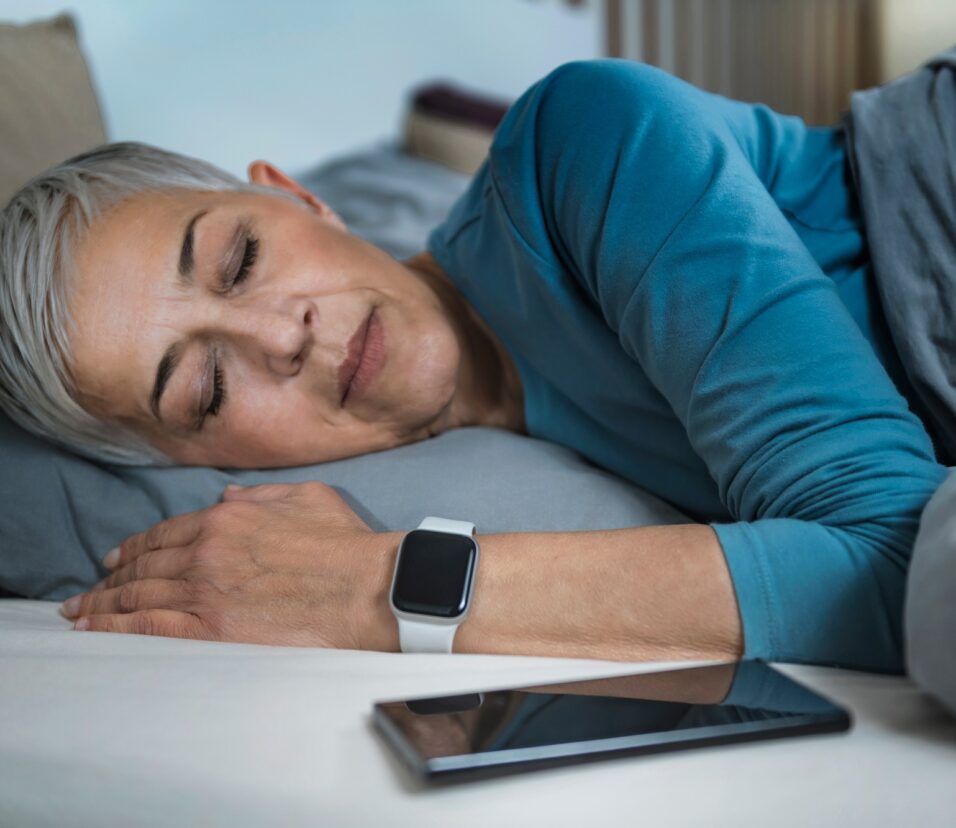Sleep & Fitness: How Quality Rest Boosts Your Gains
Introduction
When people think about fitness and muscle growth, the first things that come to mind are usually lifting weights, doing cardio, and following the right diet. But there’s a missing piece in this equation that most people ignore — sleep.
Quality rest is not just about avoiding fatigue. It is the foundation of muscle recovery, strength gains, fat loss, mental focus, and overall performance. Without proper sleep, even the best training program and the most optimized nutrition plan won’t deliver results.
In this comprehensive guide, we’ll cover:
- The science of sleep and fitness
- Why quality sleep boosts recovery and muscle gains
- The link between sleep, fat loss, and hormones
- How much sleep athletes and fitness enthusiasts really need
- Proven strategies to improve sleep quality
- Common mistakes that ruin rest
If you’re serious about achieving your fitness goals, mastering your sleep schedule is just as important as crushing your workouts.
🔹 The Science of Sleep & Recovery
Sleep is not a passive activity. While you’re resting, your body is actively repairing, rebuilding, and preparing for the next day.
Sleep has five stages, including REM (Rapid Eye Movement) and deep sleep. These stages are essential for both mental and physical recovery.
- Deep Sleep (Slow-Wave Sleep):
This is when muscle repair and growth occur. Growth hormone — the key hormone for recovery — is released during this stage. - REM Sleep:
Critical for brain function, learning new skills, and improving coordination. Athletes need strong REM sleep to sharpen reaction times and focus.
👉 Without enough deep sleep and REM sleep, your workouts will feel harder, recovery will take longer, and gains will be limited.
🔹 Why Sleep is the Missing Link in Fitness
Most gym-goers think “more training = more results”, but in reality:
Training = Stress
Nutrition = Fuel
Sleep = Growth
Here’s why sleep is the secret weapon:
1. Muscle Repair & Growth 💪
During deep sleep, the body releases growth hormone. This hormone repairs muscle fibers damaged during workouts and helps them grow back stronger.
2. Strength & Performance ⚡
Lack of sleep reduces power, endurance, and reaction time. Studies show athletes who sleep less than 6 hours perform significantly worse than those with 8+ hours.
3. Fat Loss & Metabolism 🔥
Sleep deprivation disrupts leptin and ghrelin — the hormones that regulate hunger. This makes you crave high-calorie junk food and slows fat loss.
4. Hormonal Balance 🧠
Testosterone (muscle-building hormone) and cortisol (stress hormone) are directly affected by sleep. Poor sleep = low testosterone + high cortisol = muscle loss & fat gain.
5. Mental Focus & Motivation 🎯
Without proper rest, your brain struggles with focus and willpower. You’ll feel less motivated to train, more likely to skip workouts, and prone to burnout.
🔹 How Much Sleep Do You Really Need?
- General Adults: 7–9 hours per night
- Athletes & Heavy Lifters: 8–10 hours per night
- Elite Athletes: Some even nap during the day for an additional 1–2 hours
👉 It’s not just about “sleeping more,” but about sleeping better. Quality is just as important as quantity.
🔹 Signs You’re Not Getting Enough Sleep
- Constant fatigue, even after a full night’s sleep
- Struggling to lift the same weights you did last week
- Increased sugar and caffeine cravings
- Mood swings, irritability, or lack of focus
- Frequent injuries or slow recovery from workouts
If you experience these signs, your body is telling you it needs more quality rest.
🔹 Sleep & Fat Loss: The Hidden Connection
Many people underestimate how strongly sleep impacts weight loss.
- Sleep-deprived individuals burn fewer calories at rest
- Poor sleep leads to increased appetite and cravings
- Lack of rest encourages fat storage, especially around the belly
One study found that dieters who slept only 5 hours lost 55% less fat than those who slept 8 hours — even when eating the same calories.
👉 Sleep might just be the most overlooked fat-loss tool.
🔹 Proven Tips to Improve Sleep Quality
If you want better recovery, strength gains, and fat loss, here’s how to optimize your sleep:
1. Stick to a Sleep Schedule 🕒
Go to bed and wake up at the same time every day. Your body thrives on routine.
2. Create a Sleep-Friendly Environment 🌙
- Keep your room cool, dark, and quiet
- Use blackout curtains or an eye mask
- Avoid screens 1–2 hours before bed
3. Limit Stimulants ☕
- Avoid caffeine after 2 PM
- Skip late-night pre-workout supplements or energy drinks
4. Practice Pre-Sleep Relaxation 🧘
- Try meditation, deep breathing, or light stretching
- Avoid heavy workouts right before bed (they spike adrenaline)
5. Upgrade Your Sleep Gear 🛏️
- Invest in a quality mattress and pillows
- Consider white noise machines if you live in a noisy area
6. Nutrition & Sleep 🍵
- Avoid heavy meals before bed
- Consider magnesium-rich foods (almonds, spinach) to relax muscles
- Herbal teas like chamomile can promote relaxation
🔹 Napping: A Secret Weapon for Athletes
Short 20–30 minute naps can improve alertness, performance, and recovery. Many professional athletes (like Cristiano Ronaldo and LeBron James) use strategic naps as part of their training.
🔹 Common Sleep Mistakes That Hurt Recovery
❌ Using your phone in bed (blue light delays melatonin production)
❌ Training late at night and expecting instant sleep
❌ Relying on alcohol for relaxation (it disrupts REM sleep)
❌ Ignoring stress and mental health issues
❌ Inconsistent bedtimes (confuses your circadian rhythm)
🔹 FAQs About Sleep & Fitness
Q1: Can you build muscle with little sleep?
No. Without quality sleep, muscle growth is severely limited, even with proper training and nutrition.
Q2: Do naps count as real recovery?
Yes! Short naps can supplement nighttime sleep but shouldn’t replace it.
Q3: Is oversleeping bad for fitness?
Sleeping excessively can signal poor sleep quality or health issues. Aim for consistency, not extremes.
Q4: Can sleep supplements help?
Melatonin and magnesium can support sleep, but lifestyle changes should come first.









Leave feedback about this